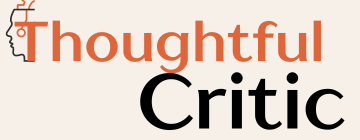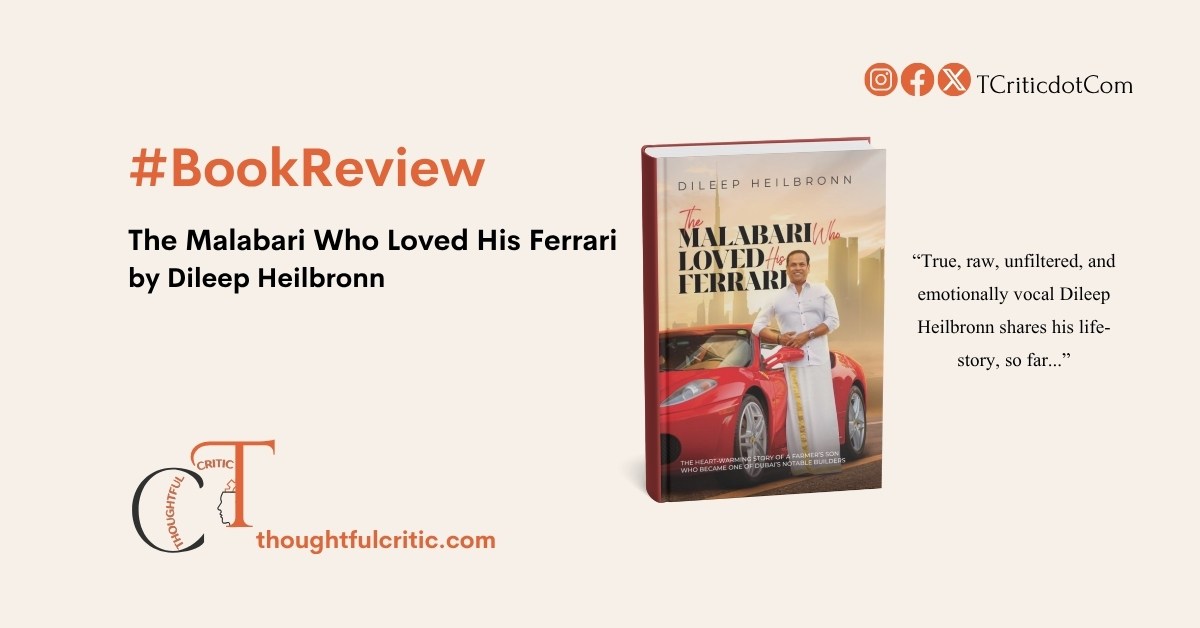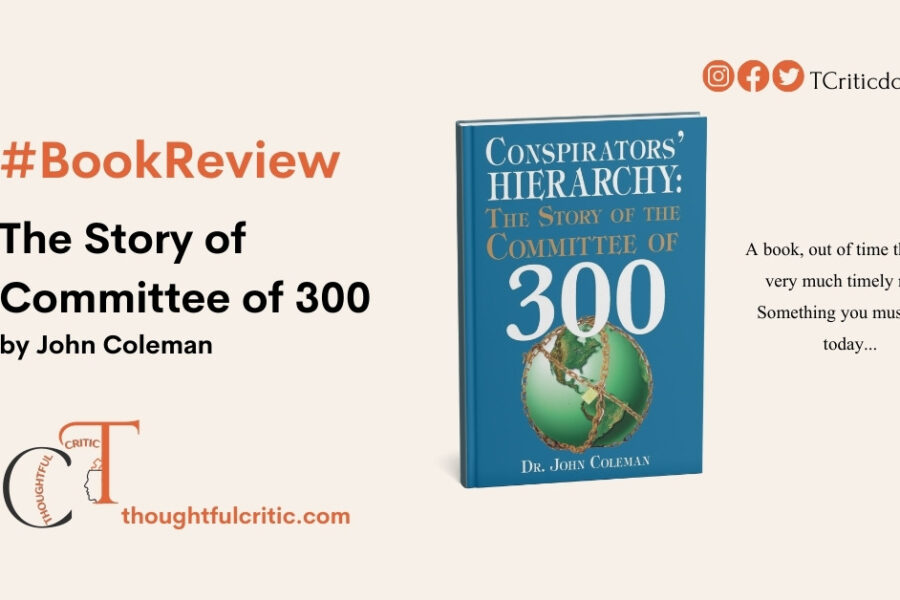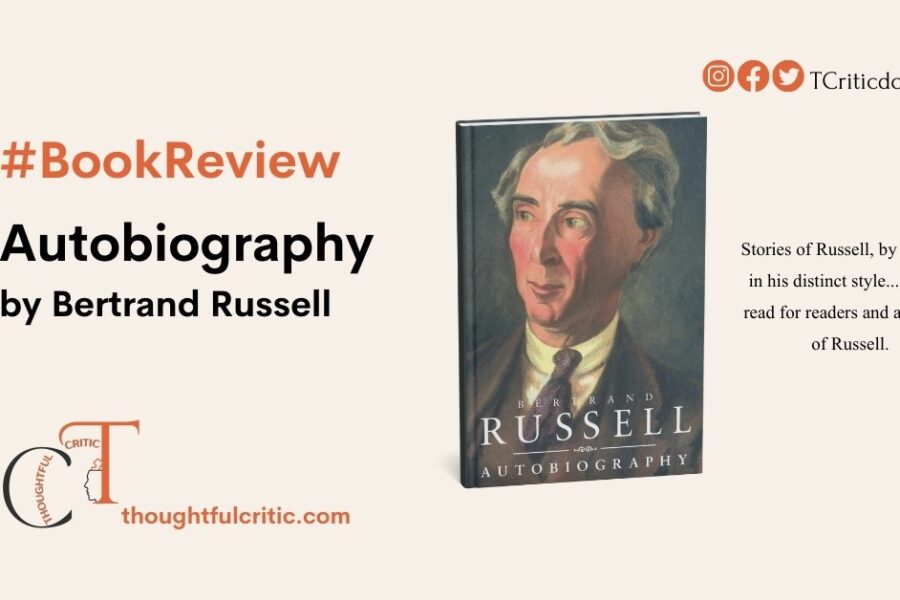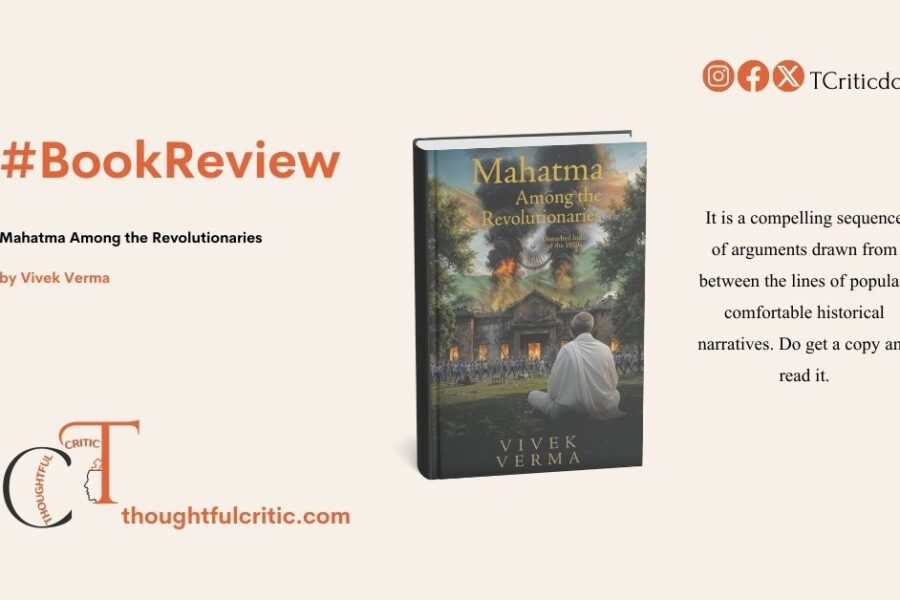The part where the journey to Dubai begins in Dileep Heilbronn’s memoir opens with a line that could serve as the thesis for his entire life’s journey: “Bound for Dubai—poor in cash, but rich in dreams.” This poignant duality—material lack juxtaposed with boundless aspiration—sets the tone for a narrative that is as much about the alchemy of resilience as it is about the architecture of success. The Malabari Who Loved His Ferrari is not merely an autobiography; it is a philosophical compass disguised as a rags-to-riches story, offering readers a masterclass in how to navigate ambition without losing one’s soul. Through vivid anecdotes, candid reflections, and a voice that oscillates between sage and storyteller, Heilbronn crafts a memoir that feels both intimately personal and universally resonant. In this review, I will not offer the traditional opinions I mostly do. I would rather share how this book highlights different emotions that may resonate with many people’s hearts. I am sure by the end of this review, you will be eager to get a copy and learn about a guy who achieved success, along with others around him, bought Ferraris, and yet appreciates the depth and smoothness of pencils… keep reading, you will like it!
The Classroom of Life: Dubai as Crucible
Heilbronn’s description of Dubai as “a classroom and every day brought a new lesson” encapsulates his transformative relationship with the city. Arriving in 1991 with just $10, he could have viewed the emirate as a harsh landscape of survival. Instead, he frames it as an ecosystem of education. In this place, labour camps taught resourcefulness, mentors like Mr. Papadouris offered paternal wisdom, and even the scorching heat became a metaphor for endurance. His early struggles—sleeping in shared accommodations, mastering punctuality as a “valuable virtue” rather than a perfunctory habit—are rendered not as hardships to bemoan but as foundational curricula. This reframing is one of the book’s most powerful features: Heilbronn’s ability to extract pedagogy from adversity. For young professionals in competitive environments, these passages are a revelation. Success isn’t about avoiding struggle; it’s about enrolling in its university.
The Scaffolding of Support: Success as a Collective Effort
“My success has never been meant to be a solitary journey,” Dileep Heilbronn asserts, dismantling the myth of the self-made man. The memoir brims with tributes to those who buoyed him—from Chandrettan’s reassuring “Stay steadfast, my friend” to Ashraf’s prophecy of “brighter days.” These voices, preserved across decades, reveal Heilbronn’s deep understanding of achievement as a mosaic of borrowed courage. His recounting of handwritten letters to loved ones in a pre-digital era (“the lifeblood of relationships”) underscores a radical idea in today’s hyper-individualistic world: ambition flourishes in community. Even his Ferrari, often a symbol of solitary triumph, becomes a shared artefact when his son Gautam features in a viral Instagram post. This ethos extends to his business philosophy; his real estate projects prioritise communal spaces, reflecting his belief that “development isn’t just about infrastructure; it’s about nurturing the human spirit.” In an age of lone-wolf narratives, Heilbronn’s insistence on interdependence is a quiet revolution.
The Alchemy of Adversity: Forgiveness, Flexibility, and Forward Motion
The book’s most compelling passages grapple with setbacks, not as obstacles but as refining fires. Heilbronn’s decision to sell his first car (a Ford Tempo) to manage loans could read as a defeat; instead, he frames it as a lesson in detachment and patience. His reflections on “forgiveness and reconciliation” after professional betrayals or personal fractures reveal a man who views grudges as dead weight. “Dwelling on negativity can be draining,” he advises, advocating for a mindset that metabolises pain into propulsion. This isn’t naive optimism but hard-won pragmatism. When his first marriage ends after 13 years, he writes not with bitterness but with the clarity of someone who understands that “life isn’t a constant melody, but an overture with moments of interaction.” Such wisdom, rooted in Kerala’s agrarian rhythms where monsoons and droughts cycle, feels urgently relevant in a culture obsessed with linear success.
The Paradox of Pride: Dhotis, Ferraris, and the Art of Balance
The memoir’s cover—a dhoti-clad Heilbronn beside a Ferrari—perfectly encapsulates his philosophy of “rooted ambition.” The dhoti isn’t a costume but a covenant with his past; the Ferrari isn’t a trophy but a testament to possibility. This duality permeates his choices: the Kerala-registered Range Rover in Dubai, the pencil collection that rivals his car keys in sentimental value. “True learning happens through observation,” he notes, explaining how he absorbed the quiet dignity of his father’s farming alongside Dubai’s skyline ambition. For readers torn between tradition and modernity, Heilbronn offers a blueprint: honour your origins without letting them limit your horizons. His love story with MJ, a Filipina pageant winner who craved simplicity, becomes an allegory for this balance. In this union, golf courses and Gulf sunsets coexist, sharing silences and familial devotion.
The Pedagogy of Small Things: Pencils, Patience, and Presence
Amidst grand themes, Heilbronn’s obsession with minutiae—like his collection of 170 pencils—reveals his deepest wisdom. The Japanese pencils (“darkest and smoothest”) aren’t just stationery; they’re metaphors for attention to craft. His 18-month home-building project in Emirates Hills mirrors this ethos: legacy isn’t rushed. These threads weave into a larger thesis: “Our life experiences and memories are our greatest teachers.” Whether describing the agony of waiting for a promotion or the joy of watching his children navigate their own paths, Heilbronn champions presence over productivity. In a world addicted to speed, his memoir is a meditation on the grace of pacing.
The Final Mosaic: A Life of Purpose, Not Plaudits
The book’s closing reflections—“We are happy only when people around us are”—culminate in a vision of success that’s communal, not transactional. His decision to document his journey (“until the ultimate adventure of life comes to an end”) isn’t vanity but a generational torch-passing. Unlike memoirs that climax with net-worth revelations, Heilbronn’s crescendo is emotional: the realisation that fulfilment isn’t found in Ferraris but in the ability to say, “Without them, I am but a solitary soul adrift.”
Therefore, in the end, I will conclude with this remark that The Malabari Who Loved His Ferrari isn’t just a memoir—it’s a mirror. For entrepreneurs, it reflects the cost of ambition; for immigrants, the art of belonging; for dreamers, the discipline behind the dazzle. With prose that’s lyrical yet unpretentious, Heilbronn doesn’t just tell his story; he invites readers to interrogate their own. In an era of curated highlight reels, this book is a masterclass in the beauty of the unvarnished journey—a reminder that the most enduring legacies are built not on what we acquire, but on what we give back, and that the truest luxury is a life lived without regret.
Liked it? Want to read? Click here to get a copy from Amazon.
Review by Adarsh for Thoughtful Critic
The Malabari Who Loved His Ferrari by Dileep Heilbronn – Review
-
Thoughtful Critic's Rating
Summary
A memoir worth reading… realising and understanding how a person may craft his future forged with ambition, grit, determination and a humble attitude, after all!
